Survival of the fittest for Korean firms in COVID-19 era
By Feb 15, 2021 (Gmt+09:00)
LG Chem to sell water filter business to Glenwood PE for $692 million


Kyobo Life poised to buy Japan’s SBI Group-owned savings bank


KT&G eyes overseas M&A after rejecting activist fund's offer


StockX in merger talks with Naver’s online reseller Kream


Mirae Asset to be named Korea Post’s core real estate fund operator


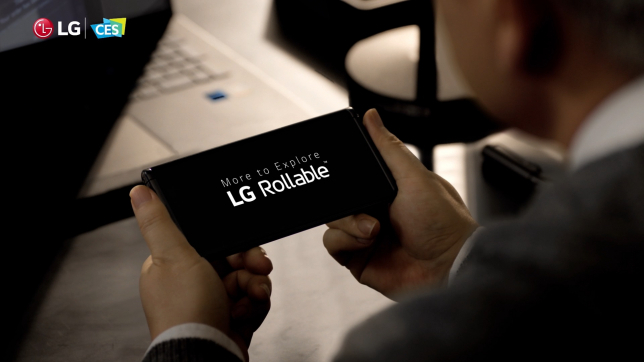
The global COVID-19 pandemic has shaken up South Korea's industry landscape, whereby in each of the country's core industries, such as airline, smartphone, shipbuilding, construction equipment and automobile, a single, dominant company is emerging as the only real survivor.
Domestic companies that cannot combat the economic slowdown ushered in by the global pandemic are disappearing one by one -- either by closing down or being acquired by another company. But the surviving companies are unable to enjoy a "winner-takes-all" system. Instead, they're on thin ice as they have to compete globally to survive, according to industry sources on Feb. 14.
In its glory days at the turn of the century, Korea-based LG Electronics Inc. was a leading mobile phone maker, accounting for 10% global share and 30% domestic share of the mobile industry market. But now, the company accounts for a mere 1% global market share and 10% domestic market share, respectively.
LG Electronics' continued operating loss and feeble presence in the global smartphone market has prompted the company to drop its smartphone division, making Samsung Electronics Co. the exclusive smartphone maker in Korea.
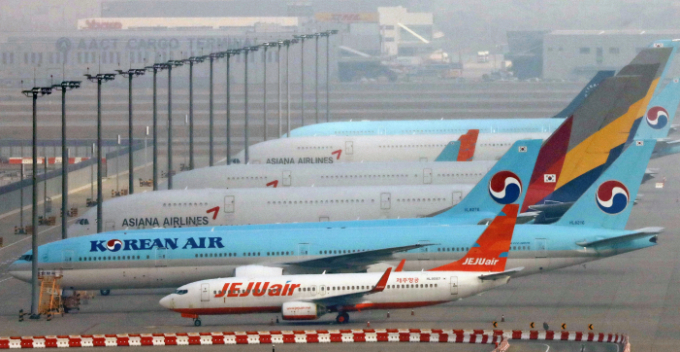
LEADING COMPANIES CONSOLIDATE: ONE INDUSTRY, ONE COMPANY
Even the three-decade-long duopoly in Korea's airline industry has collapsed as the country's leading airline Korean Air Lines Co. is set to acquire the No. 2 airline, Asiana Airlines Inc.
During the first half of last year, beleaguered Asiana Airlines was preparing to boost its operations after being acquired by Hyundai Development Company (HDC). But the deal was scrapped as the COVID-19 crisis delivered a heavy blow to the airline industry.
Eventually, Korean Air decided to take over Asiana Airlines in a 1.8 trillion won ($1.6 billion) deal that would create the country's largest airline and the world’s seventh-largest airline. Korean Air plans to speed up its acquisition of Asiana Airlines via a rights offering next month.
Also, the country's top construction equipment maker Doosan Infracore Co. was put up for sale last year to keep the debt-laden Doosan Heavy Industries & Construction Co. afloat. The world's largest shipbuilder Hyundai Heavy Industries Holdings Co. will be acquiring a controlling stake in Doosan Infracore, giving birth to the world’s fifth-largest construction equipment player and the country's No. 1 construction equipment maker.
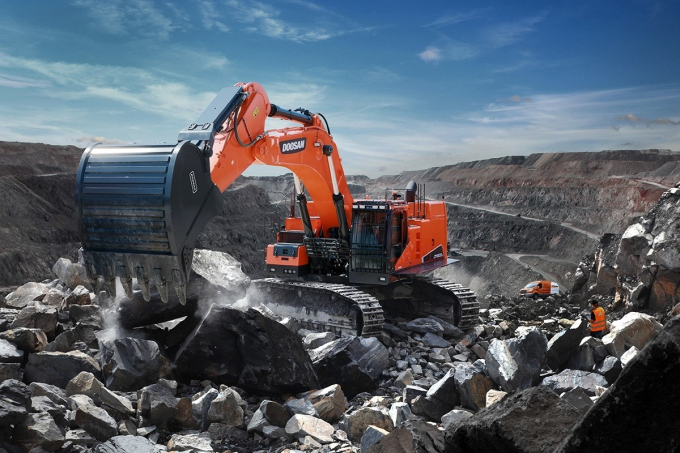
In the automobile industry, Korean automakers Hyundai Motor Co. and Kia Corp. are technically the only companies still in the race. The sister companies' rivals are no longer mid-sized domestic peers but global premium brands, considering that for both companies, imported car sales topped domestic car sales for the first time last year.
Industry experts say that even without the global pandemic, the industry trend would've arrived at a single company representing a single industry since it has become increasingly challenging for a sector's second or third-ranking players to survive amid the rapidly consolidating global market.
In the past, each country had around two to three companies that represented a specific sector, but the scene has changed to where now four to five companies compete on the global stage to grab the leading position.
"Previously, a company could sustain it if performed moderately well in the domestic market, but now their survival isn't guaranteed even if they are the No. 1 local player in the industry," said Lee Kyung-mook, a professor at Seoul National University. "If a company can't compete globally, then it will fall behind," Lee said.
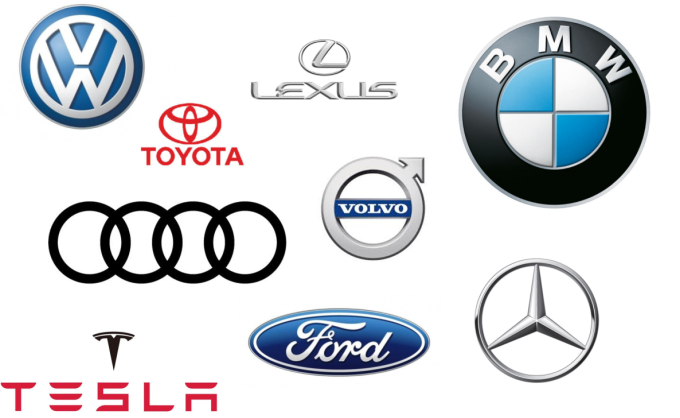
The collapse of a leading player has led to an industry breakdown for some countries. The UK used to be one of the largest car manufacturers in the world, competing with the US until the 1960s. But now it doesn't have its own native automobile brand. Also, Finland, which formerly dominated the global mobile phone industry, has no significant presence any longer following Nokia's collapse.
Japan, which had conquered the global semiconductor market in the 1990s, saw its semiconductor industry decline when Elpida Memory, currently known as Micron Memory, alongside Toshiba and Panasonic, could not keep up with the global market competition.
COST-EFFECTIVE CHINESE BRANDS THREATEN DOMESTIC COMPANIES
Meanwhile, Chinese companies are on the rise, and their emergence has become threatening for second- and third-tier Korean companies since Chinese companies have a reputation for producing cost-effective products and offering product competitiveness.
China's Huawei Technologies Co. claimed the No. 1 position in the global smartphone market in the second quarter of last year. Although the company is likely to lose ground in the market due to US trade sanctions, its position is expected to be filled in by other Chinese companies, such as Xiaomi Inc., Guangdong Oppo Mobile Telecommunications Corp., and Vivo Communication Technology Co.
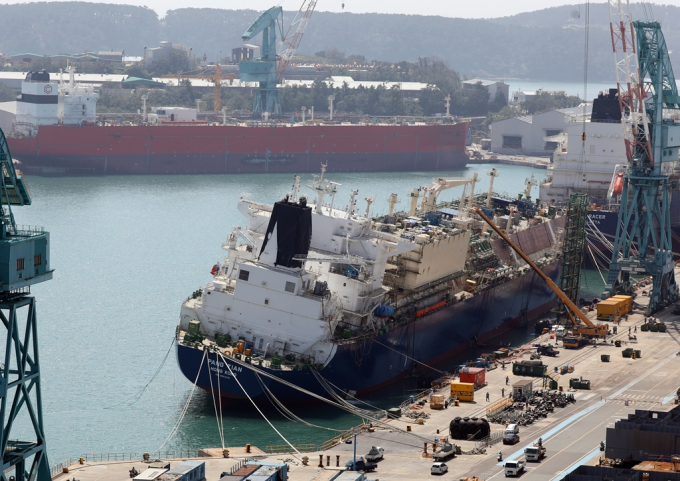
Even the Korean shipbuilders that are spearheading the global shipbuilding industry are wary of Chinese shipbuilders because they offer competitive prices and are supported by the Chinese government via massive funding. Industry watchers say Hyundai Heavy Industries decided to acquire Daewoo Shipbuilding & Marine Engineering Co., partially in a move to stay ahead of Chinese companies.
Consolidation among top-tier companies to become an industry frontrunner is also driven by the industries' changing nature. Apple didn't become a global giant just because of its well-made smartphones. Instead, the company positiioned software as its essential operation and has established an extensive ecosystem to retain its users.
Even automobiles are steadily transforming to become moving mobile devices as automakers can no longer survive by just building cars. They need to offer software, connectivity and interoperability that align with other mobility services.
"The rapid convergence between industries has made it natural for global companies to foray into new areas," said a chief executive from a leading Korean company. "Moving forward, we're expecting to see most industries led by a single dominant player."
Write to Byung-wook Do, Jae-kwang Ahn, Seung-woo Lee at ahnjk@hankyung.com
Danbee Lee edited this article.
-
 Monthly Infographic: Korean ShipbuildersSouth Korea claims top spot in 2020 global shipbuilding orders
Monthly Infographic: Korean ShipbuildersSouth Korea claims top spot in 2020 global shipbuilding ordersFeb 10, 2021 (Gmt+09:00)
2 Min read -
 Display investmentLG Display to invest $750 million in Vietnam OLED module plant
Display investmentLG Display to invest $750 million in Vietnam OLED module plantFeb 08, 2021 (Gmt+09:00)
1 Min read -
 IPOsLG Energy Solution hires Morgan Stanley, KB Securities as lead IPO managers
IPOsLG Energy Solution hires Morgan Stanley, KB Securities as lead IPO managersJan 28, 2021 (Gmt+09:00)
1 Min read -

-
 Business restructuringLG Electronics to consider selling smartphone business
Business restructuringLG Electronics to consider selling smartphone businessJan 20, 2021 (Gmt+09:00)
3 Min read -
 Infotainment JVLG Electronics, Luxoft to launch car infotainment JV in January
Infotainment JVLG Electronics, Luxoft to launch car infotainment JV in JanuaryJan 13, 2021 (Gmt+09:00)
1 Min read -

-
 Shipbuilding industryS.Korea maintains global lead in shipbuilding industry
Shipbuilding industryS.Korea maintains global lead in shipbuilding industryDec 27, 2020 (Gmt+09:00)
3 Min read -
 AirlinesKorean Air to buy rival Asiana in $1.6 bn deal to emerge as world’s 7th airline
AirlinesKorean Air to buy rival Asiana in $1.6 bn deal to emerge as world’s 7th airlineNov 16, 2020 (Gmt+09:00)
5 Min read


